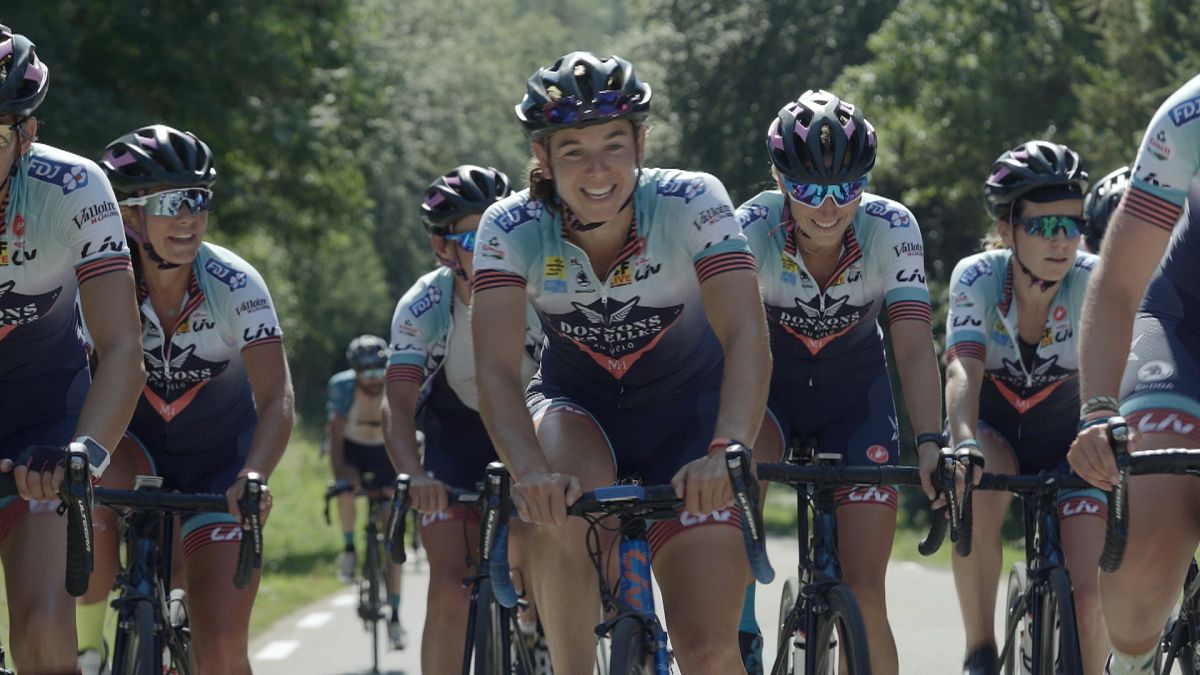Women in sport share their experiences of gender inequality - in this episode of Unreported Europe on Euronews.
Sport is one of the most powerful platforms for promoting gender equality and whilst things have improved, there is still progress to be made.
In this episode of Unreported Europe, Euronews speaks to some women in the industry about how they were discriminated against because of their gender.
Stories of women in sport
Charlotte Girard-Fabre is a former international ice hockey referee. Her words were frank and to the point when she shared her past experience.
"Since my first match I heard horrible things like dirty ^^^^^ or, you have nothing to do here. Hockey is a sport for men, go back to the kitchen," she said.
"I was nine, I wanted to start ice hockey in my club and I was immediately told that girls and boys couldn’t go on the ice together," she added.
Beatrice Barbusse is a sociologist and the general secretary of the French Handball Federation. She has also written a book about sexism in sport.
Her take on it is that women are put on trial before they even start.
"We are put on trial for being incompetent regardless. Because you are a woman you are not competent to start with. It’s up to us to demonstrate that we are competent. For a man you don't even ask," she said.
Campaigning for more equality
Despite the challenges, a number of women are pushing to make a difference in their disciplines.
Audrey Cordon-Ragot is the French national road race champion. She doesn’t only ride to win, but also to promote the position of women in cycling. She explained how discrimination is deep rooted.
"Today we continue to sign amateur contracts as women within the French Cycling Federation. This doesn’t happen for men who sign professional contracts. We are just asking for our real value to be recognised in order to make cycling our job," she said.
Audrey founded an association to protect women’s cycling rights and she has chosen to race for a non-French team called Trek-Segafredo.
"Racing for an American team helps me to move forward and see things in a different way compared to what it would have been like if I had stayed in France. We all know that English speaking countries are ahead of the game in gender equality. Being part of this team shows my open position on this matter and it’s a way to defend it even more," she explained.
Changing the media landscape
In Paris, the heart of the French media industry, we went to speak to Jérôme Cazadieu, who is the chief content officer at L'Equipe - the private newspaper and TV sports giant.
"It's true that if you consider the past four to five years, we have covered female sports events a bit less, apart from football and team sports, because there are fewer female champions today in French sport," he said.
In August, L’Equipe was criticised for leading coverage with the Tour de France and not with the French Olympique Lyonnais female team winning the fifth Champions League title in a row. He said it was a "question of news hierarchy".
"We did publish the story and it made the front page, we did a big banner. I don’t wake up in the morning saying that I have to seek equality between male and female sport. What makes women’s sport more visible at the end of the day is the performance of our teams. We have been criticised for not having opened with the victory of the Olympique Lyonnais female players, but the public service broadcaster didn’t show the match either," he added.
Steady progress
The situation has been steadily improving on all fronts but many other areas still need work - like closing the pay gap.
Clare Floret is the founder of Donnons des Elles au Vélo J-1 - a club campaigning for change.
She has been fighting for a female Tour de France since 2015 - and now it is going to take place in 2022.
"It’s a real outcome for us. We know it will bring fresh oxygen into female cycling in general. It will have so much visibility, that it will automatically attract more sponsors for the teams. This will allow them to structure themselves better, and to pay our female cyclists better. It’s a virtuous circle," she said.
"The idea behind this, is really to make cycling more accessible to everybody and to show that whatever our sporting profile might be, we all have our place on a bike,” she added.
Female athletes have realised they need to stand together to win the race to equality in sport. Creating a network across disciplines has become crucial to gain a level playing field where there is no room for sexism.
